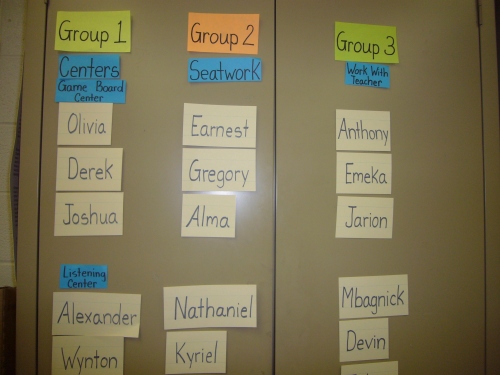 Reading Groups is the hot topic in my school right now. We are all stuck in the same boat… we know exactly what we are supposed to do. However, running reading groups with 33-35 kids is a classroom management nightmare. I was lucky enough to have a fantastic Reading Specialist in my school my first year of teaching. She went out of her way to spend time with me and teach me a management method that makes it possible to do groups in such an overcrowded classroom.
Reading Groups is the hot topic in my school right now. We are all stuck in the same boat… we know exactly what we are supposed to do. However, running reading groups with 33-35 kids is a classroom management nightmare. I was lucky enough to have a fantastic Reading Specialist in my school my first year of teaching. She went out of her way to spend time with me and teach me a management method that makes it possible to do groups in such an overcrowded classroom.
To start with, I divide my kids into 3 groups. Yes, just 3 groups. Each day, the groups do 1 of 3 things: Work with the Teacher, Seatwork, or Centers. The “Work with the Teacher” group is pretty self explanatory. I do a guided reading of a leveled reader with the group. The “Seatwork” group stays at their own desks, and I have a phonics page or a comprehension page ready for them to work on. It is very important that the page is leveled to the group – don’t make it too hard for them to do on their own. The “Centers” group is subdivided into three groups. Currently, I have a listening center, a game board center, and a library center. Again, it is very important that these centers have activities that are at the kids’ level so they can work independently.
The first few weeks of centers is always challenging. I am constantly reinforcing the importance of independence. After a few weeks of practice, my kids understand that I am busy with my group and they are not allowed to ask me questions. In other words, they must stay in their own groups and do their work! It takes a great deal of patience to get your kids to that point… but it will happen! I am always looking for good center games. Here are a few of my favorites….Letter Sound Spin, Rhyming Memory, Word War, Bam!, Go Word! and Take a Roll.-Melissa
 :
:  :
:  :
:  :
: 







